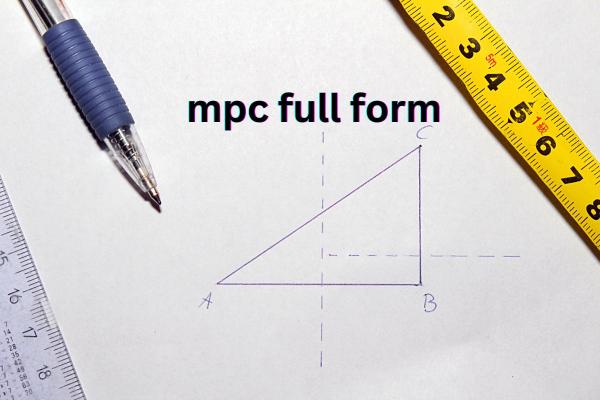The rise of e-commerce has transformed the way we shop, and the world of coin collecting and investing is no exception. Whether you’re a seasoned numismatist or a first-time investor, buying coins from online dealers has become an increasingly popular option. However, with the convenience of online shopping comes the question: Is buying from coin dealers online safe?
In this comprehensive article, we’ll explore the safety concerns when purchasing coins online, offer tips to ensure a secure transaction, and guide you on how to identify trustworthy dealers. By the end, you’ll have all the information you need to make confident, secure purchases when buying coins online.
Table of Contents
Toggle1. The Growing Popularity of Online Coin Dealers
In the past, buying coins meant visiting a local coin shop, attending coin shows, or purchasing through catalog sales. However, the advent of online platforms has revolutionized the numismatic world, offering buyers access to a global marketplace. Websites like eBay, APMEX, JM Bullion, and SD Bullion have become go-to destinations for collectors and investors alike.
The convenience of shopping from home, the ability to compare prices, and the vast selection of coins are some of the reasons online coin dealers are growing in popularity. However, this widespread availability of online dealers raises concerns regarding the safety and legitimacy of certain sellers.
2. The Risks of Buying Coins Online
While online platforms offer significant advantages, there are potential risks to be aware of when purchasing coins. Understanding these risks can help you take steps to protect yourself. Some common concerns include:
A. Fake or Counterfeit Coins
One of the primary risks when buying coins online is the possibility of purchasing counterfeit or fake coins. Counterfeit coins are designed to look like real coins but are made from materials that are not the precious metals they claim to be. These fakes are often produced using cheaper alloys and can be difficult to spot without proper knowledge or testing.
B. Misleading Coin Descriptions
Not all online coin dealers are transparent or accurate in their descriptions. Some sellers may overstate the condition, rarity, or authenticity of their coins, making it difficult for buyers to make informed decisions. This can lead to disappointment or financial loss when the coin you receive doesn’t match the online description.
C. Overpriced Coins
Some online dealers may charge higher-than-expected premiums on coins, especially if they are rare or highly sought after. Without doing thorough research, it’s easy to overpay for a coin. Prices can vary widely depending on factors such as the coin’s rarity, condition, and market demand.
D. Fraudulent Sellers and Scams
Unfortunately, the rise of online shopping has also brought an increase in fraudulent coin dealers. Some sellers may operate under fake names or run “bait and switch” scams, where they list valuable coins but send counterfeit or inferior items after receiving payment.
3. How to Safely Buy Coins from Online Dealers
Despite the risks, buying from reputable coin dealers online is generally safe if you follow certain guidelines. By doing your due diligence and taking some precautions, you can ensure that your purchases are secure and that you’re getting the real value of the coins you’re buying.
A. Research the Dealer’s Reputation
Before making a purchase, always research the dealer’s reputation. Trusted dealers often have a solid online presence and are well-reviewed by previous customers. Websites like Trustpilot, BBB (Better Business Bureau), and Google Reviews are great places to find unbiased reviews about the dealer. Look for dealers with a history of positive feedback and transparent business practices.
Additionally, many reputable dealers are members of professional numismatic organizations, such as the Professional Numismatists Guild (PNG) or the American Numismatic Association (ANA). These memberships provide a level of assurance that the dealer adheres to ethical standards and practices.
B. Look for Certifications and Authenticity Guarantees
To avoid buying counterfeit coins, always look for dealers who offer certification and guarantees of authenticity. Many trustworthy coin dealers provide third-party certification from reputable grading services like PCGS (Professional Coin Grading Service) or NGC (Numismatic Guaranty Corporation). These services grade coins based on their condition, authenticity, and other key factors, ensuring that buyers receive coins that meet high standards.
Coins that have been professionally graded and certified carry a premium value because they are guaranteed to be authentic and in the described condition. Reputable dealers often offer a money-back guarantee or return policy in case the coin doesn’t meet your expectations or turns out to be a fake.
C. Understand the Seller’s Return Policy
Before buying from an online dealer, understand their return policy. A reliable coin dealer should have a clear and straightforward return policy that allows you to return coins that aren’t as described, or if they turn out to be counterfeit or damaged. Make sure you understand the timeframe for returns, who pays for return shipping, and what conditions apply.
D. Pay Attention to Payment Methods
The payment method you use can provide an additional layer of protection when buying from online dealers. For example, credit cards and PayPal offer fraud protection, allowing you to dispute transactions if the seller doesn’t deliver the product as promised. Avoid using wire transfers or sending money through non-secure methods like cash or checks, as these are more difficult to trace or reverse in case of a scam.
E. Verify the Coin’s Authenticity
If the online dealer does not offer certification, you can still verify the authenticity of a coin yourself, though this requires experience and knowledge. One way to ensure that a coin is real is to perform a weight and size check. Genuine gold or silver coins have standard weights and dimensions, which can be cross-checked using an online guide or a reputable coin catalog. Another option is to use a magnet to test the coin. For instance, gold is not magnetic, so if the coin is attracted to a magnet, it is likely not made of gold.
For more expensive or rare coins, consider using a professional grading service to confirm their authenticity. These services can also provide an assessment of the coin’s condition, which can affect its value.
4. Popular and Reputable Online Coin Dealers
To ensure a safe purchase, it’s always wise to buy from well-established and trustworthy online coin dealers. Here are some reputable platforms that have built a reputation for reliability:
A. APMEX (American Precious Metals Exchange)
APMEX is one of the largest and most trusted online coin dealers. With a wide selection of gold, silver, and platinum coins, APMEX offers detailed product descriptions, competitive prices, and secure transactions. They also provide third-party certification and a return policy for peace of mind.
B. JM Bullion
JM Bullion is another highly regarded online coin dealer. Known for their excellent customer service and vast inventory, JM Bullion offers gold, silver, and platinum coins, as well as bars. They provide transparent pricing, secure payment options, and a generous return policy.
C. SD Bullion
SD Bullion is a well-established dealer that offers a range of investment-grade coins, including American Eagles, Canadian Maple Leafs, and more. Known for low premiums over spot prices, SD Bullion is an excellent choice for serious investors looking to maximize their gold and silver holdings.
D. GovMint
GovMint specializes in rare and limited-edition coins, offering a wide variety of collectible and historical coins. With an excellent reputation and a focus on quality, GovMint provides certification from respected grading agencies to ensure authenticity.
E. Coin Vault
Coin Vault offers a broad selection of U.S. and world coins, including bullion coins, proof sets, and rare numismatic items. Their website provides useful educational resources for new buyers, as well as a detailed description of each coin’s value and condition.
5. Red Flags to Watch for When Buying Coins Online
While many online dealers are trustworthy, some unscrupulous sellers may try to scam buyers. Watch out for the following red flags:
- Unrealistically Low Prices: If a deal seems too good to be true, it probably is. Scammers often price their coins far below market value to attract buyers quickly.
- No Contact Information: Avoid dealers who don’t provide a phone number or physical address. A legitimate dealer should be easy to contact if you have questions or concerns.
- Poor Website Security: If the website doesn’t use secure payment methods or lacks encryption (look for “https” in the URL), it’s a sign that the dealer may not prioritize security.
- Negative Reviews: Always check for negative feedback or complaints on trusted review sites. Multiple complaints about counterfeit items, poor customer service, or unfulfilled orders are major red flags.
6. Conclusion
Buying coins online can be a safe and rewarding experience if you take the necessary precautions. By researching the dealer’s reputation, looking for third-party certifications, understanding the return policy, and paying attention to payment methods, you can protect yourself from scams and counterfeit coins. Stick to well-known, reputable dealers and use secure payment options for the best experience.
Remember, the key to safe online coin purchases lies in being well-informed and vigilant. With these tips in mind, you can confidently explore the world of online coin dealers and make smart, secure purchases that will enhance your collection or investment portfolio.















